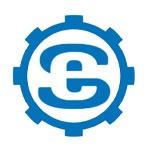What do HR pros need to know about AI?
What do HR pros need to know about AI?
AI is a game-changer for human resources and recruiting teams, thanks to its ability to automate backend processes, sort resumes quickly, track applicants smoothly, engage with candidates on various channels, match talent to the most relevant opportunities and answer questions using natural language processing.
HR professionals need to know about AI because it can help them improve their efficiency, effectiveness and fairness in their work. However, they also need to be aware of the ethical challenges and risks of using AI, such as data privacy, bias, transparency and accountability.
To help HR professionals use AI responsibly, the World Economic Forum has created a toolkit for HR professionals, translating the broad principles of AI ethics into practical guidance. The toolkit covers topics such as how to select and evaluate AI-based HR tools, how to involve stakeholders in the process, how to monitor and audit AI outcomes and how to communicate and explain AI decisions.
What is AI in HR?
AI in HR is the use of artificial intelligence (AI) to perform various functions in human resources (HR) departments. AI can automate simple tasks like sorting resumes, provide insights into workforce trends and employee sentiment, help hire and develop the right talent, and improve coaching, training, and candidate experience. AI can also use natural language processing and machine learning to screen and communicate with candidates through chatbots.
What are the benefits of AI in HR?
AI can benefit HR professionals by saving time, enhancing decision-making, and increasing employee engagement and retention. By automating repetitive and tedious tasks, AI can free up HR professionals to focus on more strategic and creative aspects of their work. By providing data-driven insights, AI can help HR professionals make better and faster decisions based on evidence and analytics. By improving the candidate and employee experience, AI can help HR professionals attract and retain top talent and foster a positive culture.
What are the challenges of AI in HR?
AI in HR also raises ethical and practical challenges that need to be addressed. Some of these challenges include data privacy, bias, transparency, accountability, and human interaction. Data privacy refers to the protection of personal and sensitive information that is collected and processed by AI systems. Bias refers to the potential for AI systems to reflect or amplify human prejudices or stereotypes that can harm certain groups or individuals. Transparency refers to the ability to understand how AI systems work and why they make certain decisions or recommendations. Accountability refers to the responsibility for the outcomes and impacts of AI systems on people and society. Human interaction refers to the balance between automation and human judgment and communication in HR processes.
How can HR pros use AI responsibly?
To use AI responsibly, HR pros need to follow best practices and guidelines that ensure ethical and effective use of AI in HR. Some of these best practices and guidelines include:
- Define clear goals and expectations for using AI in HR
- Choose reliable and reputable vendors or partners that provide high-quality AI solutions
- Ensure data quality, security, and compliance with relevant laws and regulations
- Monitor and audit AI systems for performance, accuracy, fairness, and bias
- Explain and justify AI decisions or recommendations to stakeholders
- Involve human oversight and intervention when necessary
- Respect human dignity, autonomy, and rights in using AI in HR
- Seek feedback and input from candidates and employees on their experience with AI in HR.
Top companies developing AI for HR & recruiting
There are many companies that are developing AI for HR and recruiting, but some of the top ones according to various sources are:
1. Paradox: Paradox provides an AI-powered assistant for recruiters and job seekers, named Olivia, that engages with candidates on various channels, learns about their skills and experience, schedules interviews and answers questions using natural language technology.
2. HireVue: HireVue enables companies to deliver a more engaging candidate experience with conversational AI and automation capabilities. A recruiting assistant can hold text-based conversations with individuals, guiding them to the jobs that best fit their skill sets. HireVue also offers video interviewing and assessment solutions that use AI to evaluate candidates' skills and potential.
3. iCIMS: iCIMS offers a talent cloud platform that employs text and live chat to interact with candidates and employees. The platform’s chatbot is customized to a company’s brand and voice, maintaining a company’s culture even through talent pipelines. iCIMS also uses AI to source, screen and rank candidates based on their fit for the role.
4. Textio: It helps recruiters write job descriptions, emails and messages that attract more diverse and qualified candidates. Textio also analyzes how different words and phrases affect the outcomes of hiring processes.
5. Eightfold AI: Eightfold AI is a talent intelligence platform that uses AI to match talent to the most relevant opportunities. Eightfold AI helps recruiters source, engage and hire candidates based on their skills, potential and fit for the role. Eightfold AI also helps employees discover internal career paths and learning opportunities.
What is the cost of using AI in HR?
The cost of using AI in HR depends on various factors, such as the type of AI solution, the size and scope of the project, the vendor and the expected benefits. However, some general points can be made:
- AI can help reduce costs by automating repetitive and manual tasks, improving efficiency and productivity, enhancing decision-making and reducing errors and bias.
- AI can also help increase revenue by attracting and retaining talent, improving employee engagement and performance, fostering innovation and creativity, and enabling new business opportunities.
- Different pricing models, such as subscription fees, pay-per-use fees, licensing fees or custom fees. The cost may vary depending on the features, functionalities and integrations of the AI solution.
- AI can have different return on investment (ROI) metrics, such as time to hire, quality of hire, employee turnover, employee satisfaction, learning outcomes or business outcomes. The ROI may vary depending on the goals, expectations and measurements of the AI project.
- It can have different implementation costs, such as data collection and preparation, system integration and configuration, user training and support, change management and governance. The implementation cost may vary depending on the complexity, scale and duration of the AI project.
Some examples of AI solutions for HR and their costs are:
- Sidekick: an AI-powered coaching platform that uses a subscription fee that is comparable to a one-time executive coaching session.
- HireVue: HireVue charges a per-candidate fee that ranges from $5 to $25 depending on the complexity of the assessment.
- Textio: Textio charges a subscription fee that ranges from $29 per month for individuals to $299 per month for teams.
- iCIMS: It does not have a fixed pricing plan either, but rather offers customized pricing based on each client's size, needs, and goals. According to TrustRadius, a review site for software products, iCIMS does not have a setup fee and its starting price (not including setup fee) is $1,700 per month. According to HeroHunt.ai, a blog about recruitment strategies, iCIMS pricing per year varies depending on the number of employees in the organization. For example, for 1-100 employees, the cost is $9,000; for 101-250 employees, the cost is $11,500; for 251-500 employees, the cost is $15,000; and so on. To learn more about iCIMS pricing and packages, you can request a demo or a quote at icims.com.
How can I calculate the ROI of an AI project in HR?
To calculate the ROI of an AI project in HR, you need to follow some steps:
- Define the business problem and the AI solution that you want to implement. Identify the goals, expectations and measurements of the project. For example, you may want to use AI to improve employee retention, and measure it by employee turnover rate.
- Estimate the benefits of the AI solution in terms of revenue, cost savings, productivity, customer satisfaction, employee engagement or any other relevant metric. For example, you may estimate that using AI to reduce employee turnover will save you $500,000 per year in hiring and training costs.
- Estimate the costs of the AI solution in terms of data collection and preparation, system integration and configuration, user training and support, change management and governance. Also include the costs of hardware, software, power consumption and licensing. For example, you may estimate that using AI to reduce employee turnover will cost you $200,000 per year in total.
- Calculate the ROI by subtracting the costs from the benefits and dividing by the costs. Multiply by 100 to get a percentage. For example, if your benefits are $500,000 and your costs are $200,000, your ROI is ($500,000 - $200,000) / $200,000 x 100 = 150%.
- Monitor and evaluate the ROI over time by tracking the actual outcomes and costs of the AI project. Compare them with the expected ones and adjust accordingly. For example, you may find that your actual employee turnover rate is lower or higher than expected, or that your AI solution requires more or less maintenance than expected.
My point of view
AI is a powerful technology that can help HR professionals with various functions and tasks. However, it also comes with ethical and practical challenges that need to be addressed. By understanding what AI is, what it can do, what it cannot do, and how to use it responsibly, HR pros can leverage AI to enhance their work while keeping the human in human resources.




.png)

